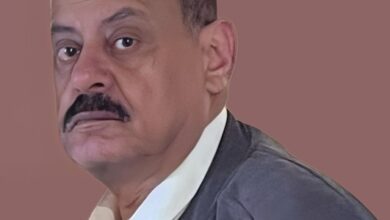Snakes and the Blind

yemeni mp
Ahmed Saif Hashed
In our villages, snakes do not merely crawl; one type can leap several meters, darting through the air as if it were flying. Its incredible speed makes it almost impossible to catch a glimpse of its movement.
This particular kind of snake is known in our villages as “Mazraqi,” due to its agility and ability to jump at an angle. It possesses an aggressive nature and leaves a lasting impression on anyone it bites, potentially causing a lingering phobia.
My father once suffered a snake bite on his hand. In the midst of his pain, he swiftly isolated the affected area with a tight bandage to prevent the venom from spreading into his bloodstream.
He quickly made an incision with his dagger to drain out as much contaminated blood as possible, and then he consumed a mixture of crushed foam and milk. These immediate steps were the available first aid measures to attempt to save someone who has been bitten by a snake.
Additionally, a few individuals possessed a rare black stone known as the “Stone of the Blind,” whose origins remain uncertain—whether from India or Ethiopia. This stone was requested from its owner and placed on the wound, where it would adhere, supposedly helping to absorb the venom from the body.
I witnessed my formidable father, a towering figure, laid low by a snake bite. I felt the irony of his massive, muscular body being brought down by the tiny fangs of a small snake, illustrating how luck could lead him to a bed, or perhaps to the grave.
This irony reminded me of great and ancient peoples who have fallen victim to the tyranny of traitors, fools, and bullies, supported by foreign powers. Their recovery, if possible, may take a long time.
* * *
In my childhood, I harbored a hatred for snakes, while simultaneously feeling sympathy for what we called “the blind.” I sensed an injustice against them due to a cleverly devised exchange that favored the snakes, as my mother recounted.
She had told me that “the blind” were sightless, prompting me to ask why. She explained that the snake outsmarted the blind in a deceitful trick, taking their legs in an unfair exchange, while the snake gained their eyes and speed.
I felt deep sorrow for “the blind,” who had become sightless and unable to benefit from their many legs, rendering them immobile despite their abundance. In contrast, snakes were sleek and captivating in their colors, profiting from the blindness of “the blind” with their sight and swiftness. It was a cunning victory that persisted.
This exchange seemed profoundly unjust to me, and I expressed my compassion for “the blind” in many ways. Whenever I encountered them on the road, I would carry them to a safer place away from feet and shoes.
When I found them on the mountain after rain, struggling to navigate, I would leave my sheep to carry them to a better spot, shortening the path to a location they could not reach without my help. Yet, once I focused on them, I would notice some of my sheep had wandered far from me, requiring effort to gather them back.
* * *
Today, I see part of the tragedy of our “blind” peoples, suffering from disasters, crises, and poverty. They face the domestication of their minds, distortion of truth, and submission to their impoverishment, stemming from the usurpation of power through oppression or from unequal exchanges and misleading concepts that intentionally reinforce the injustices faced by these peoples.
These concepts carry various deceptive titles, twisting the truth. In this regard, Fyodor Dostoevsky remarked that those who twist the truth to fit their ideas and beliefs are among the most despicable.
Amidst these falsehoods lie deceptive concepts, cleverly crafted for the benefit of rulers at the expense of deceived populations. Some of these concepts are cloaked in titles like “Islam,” the idea of “al-Bay’ah,” the alleged “Shura,” and the ruse of “We have empowered you,” among others that convey the same meaning.
Modern concepts, such as the supposed “social contract,” actually serve to reinforce a centralized power that controls not only its peoples but also many nations worldwide that are beholden to its systems, particularly those that fulfill the role of global capital.
In today’s world, the declared and undeclared laws, backed by power and dominance, govern all. International organizations and bodies have become the executive outputs of these policies, while the peoples remain victims of this exploitative capital.
Our afflicted peoples endure immense suffering, being the most oppressed, exploited, and unjustly treated, victims of global predatory capital on one hand, and the oppressive, dictatorial regimes in their lands on the other.
* * *






